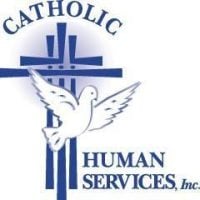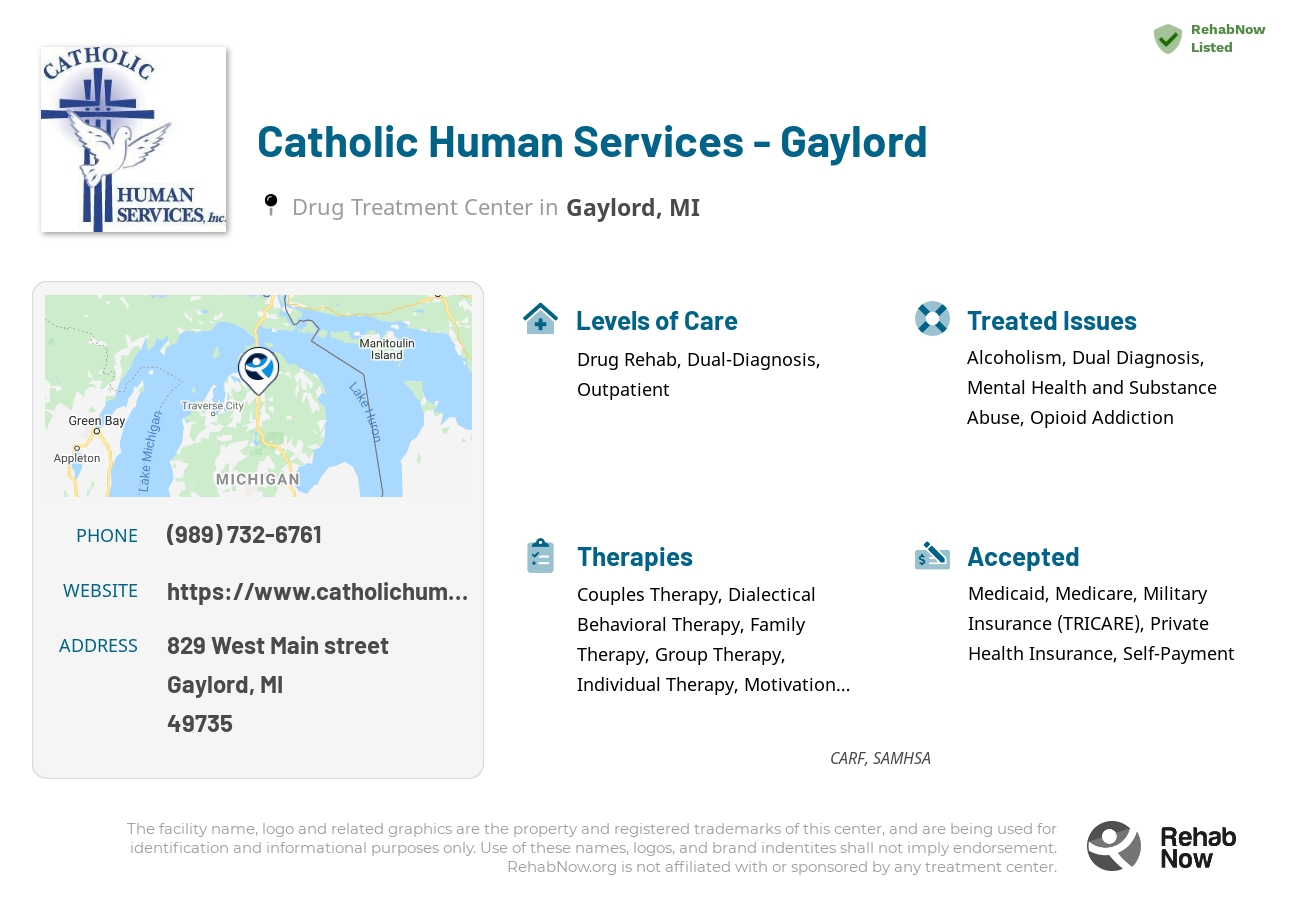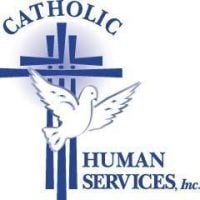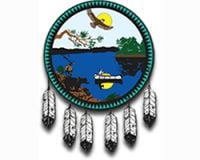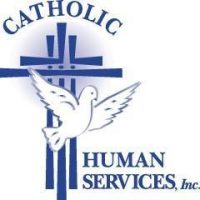Catholic Human Services - Gaylord
Drug Rehab Center in Gaylord, Michigan
Catholic Human Services - Gaylord in Gaylord, Michigan is an accredited addiction treatment center that offers evidence-based and individualized therapy and care for individuals struggling with addiction and mental health issues, providing a variety of services including assessments, counseling, residential treatment, medication management, aftercare planning, and specialized programs for co-occurring disorders and family support.
About Catholic Human Services - Gaylord in Michigan
Catholic Human Services - Gaylord, located in Gaylord, MI, focuses on outpatient treatment for substance use disorders with a holistic approach. They emphasize healing the mind, body, and spirit using evidence-based therapies like motivational interviewing, cognitive behavioral therapy (CBT), and dialectical behavioral therapy (DBT). Their unique approach to addiction as a disease requiring abstinence and comprehensive care sets them apart.
- Holistic Treatment Approach: Integrates mind, body, and spirit into recovery, addressing the whole person rather than just the addiction.
- Evidence-Based Therapies: Utilizes motivational interviewing, CBT, and DBT among other therapies to foster recovery.
- Specialized Groups and Services: Offers gender-specific recovery groups, co-occurring disorders groups, and court-related services to cater to diverse needs.
Catholic Human Services - Gaylord is accredited by CARF and SAMHSA, ensuring high-quality care and adherence to best practices in addiction treatment. Their personalized care plans and multidisciplinary approach, combining traditional therapies with holistic techniques, underscore their commitment to excellence in recovery support.
The facility treats a variety of addictions and issues, including dual-diagnosis cases, through outpatient treatment, detox, and aftercare services. Their treatment methods are designed to support individuals at every stage of their recovery journey, promoting long-term sobriety and wellbeing.
Genders
Ages
Modality
Additional
Accreditations
SAMHSA

CARF
The Commission on Accreditation of Rehabilitation Facilities (CARF) is a non-profit organization that specifically accredits rehab organizations. Founded in 1966, CARF's, mission is to help service providers like rehab facilities maintain high standards of care.
Conditions and Issues Treated
Opioid addiction has become a significant health problem in the United States. When a person’s life becomes unmanageable because of an opioid addiction, treatment can help them get sober. Treatment includes medical care and counseling.
“With so many people struggling with opioid addiction, we need more care and attention for those who want to quit. Opioid addicts often take opioids when they experience a painful injury – that’s how the cycle starts! When someone begins taking their medication differently than prescribed or takes an excessive amount of drugs, it means they’re hooked on drugs and in danger of overdosing.
The most successful way to beat this is through detoxing from these types treatments at Catholic Human Services - Gaylord in . Most facilities start by using medical support during the process while providing counseling services; rehabilitation comes later on after treatment has been completed successfully.
A “dual diagnosis” is when the individual has two medical issues at the same time. The top co-occurring mental disorders with addiction are depression, anxiety, ADHD, bi-polar disorder. Addiction is also considered a mental illness that is not a choice but rather a medical condition. Addiction can be caused by any number of underlying issues.
Dual diagnosis is provided by Catholic Human Services - Gaylord to treat addictive tendencies as well as any untreated mental illnesses. This ensures successful long term health and recovery for patients after treatment has been completed.
Dual diagnosis is provided by Catholic Human Services - Gaylord to treat addictive tendencies as well as any untreated mental illnesses for people in Michigan. This ensures successful long term health and recovery for patients after treatment has been completed.Levels of Care Offered
This center offers a variety of custom treatment tailored to individual recovery. Currently available are Drug Rehab, Dual-Diagnosis, Outpatient, with additional therapies available as listed below.
Outpatient programs at Catholic Human Services - Gaylord, the Gaylord resident can live with their family while continuing with their job or studies. Treatment includes educating the patient on drug abuse, medications, and counseling sessions at the individual or group level. Outpatient treatment plans cover diagnosis, detoxification, management, and counseling. They are a popular option for those who have graduated from inpatient facilities.
Therapies & Programs
Individual therapy is a form of counseling where you meet with a trained professional one-on-one. Meeting with a therapist in this setting allows for a personal and trusting relationship to be built. This allows the patient to open up about sensitive or private issues they may not feel comfortable discussing in a group. Individual therapy helps identify the root causes of your addiction, which can help prevent relapse.
Couples therapy for drug addiction is a unique form of therapy that allows family members to work through the emotional issues of their loved one’s addiction together. Family members can support each other while learning how to cope with the addiction and encourage healthy changes. The two will work with a therapist to learn how the addiction affects themselves and the relationship.
Family therapy is often done alongside drug treatment to help addicts stay sober. The goal of family therapy for drug addiction is to create an environment where communication can happen without judgment, hostility, or blame. The therapist will sit with the family so they can learn how to communicate differently and provide new tools for dealing with emotions so that people don’t want to drink or do drugs. It’s important for families to focus on relapse prevention plans during treatment so that if the addict feels like they want to use again, they’ll know what steps they need to take together to prevent it from happening again in the future.
Group therapy sessions are another common addiction recovery service. These group sessions typically involve six to 12 addicts who meet regularly with a trained professional for support and guidance.
During these sessions, the group shares their experiences with one another and provides feedback that can help each member avoid relapse or overcome specific obstacles they are facing in their recovery process. With this type of support and guidance, addicts can feel like they are part of a community that understands their struggles and will help them get through the hard times.
Many people struggling with drug addiction have experienced some form of trauma in their lives. It is crucial that these individuals seek out professional help; otherwise, their drug abuse and addiction will likely continue.
Therapists and counselors at drug treatment centers employ several treatment programs to help people struggling with drug addiction, including trauma therapy. Trauma therapy helps people dealing with addiction by allowing them to confront the traumas of their past and move past them.
It is important to note that trauma therapy should not be confused with PTSD (post-traumatic stress disorder). Rather, it is used to treat the effects of trauma, which are often at the root of addiction.
Dialectical Behavior Therapy was developed in the 1980s to treat chronically suicidal individuals. It is a cognitive-behavioral therapy that combines standard DBT with strategies derived from Zen Buddhism, such as mindfulness training.
DBT has been adapted for use with other types of psychiatric problems, including eating disorders, substance abuse disorders, borderline personality disorder, posttraumatic stress disorder (PTSD), and other personality disorders. Dialectical Behavior Therapy is considered a psychosocial treatment of BPD. This means that while it can be used alone or in conjunction with drug treatments, DBT does not rely on medications to treat the disorder. Instead, DBT aims to help patients change their thinking and behavior.
Cognitive Behavioral Therapy (CBT) focuses on the underlying thoughts and behaviors that caused the problem of addiction in the first place and may cause a relapse. Negative feelings are common in drug abuse disorders, but they can lead to co-occurring disorders if not recognized. CBT involves strategies that help to change the behavior pattern by restructuring negative thoughts into positive ones. It helps to remove these feelings, and it provides long-term benefits. Also, CBT promotes self-awareness and self-control. It can be administered as a monotherapy or as part of combination therapy.
CBT can improve the patient’s mood, reduce drug cravings and boost success rates on treatment plans. Regular practice can help individuals handle negative attitudes, thoughts, and feelings without turning to drugs or alcohol. The core belief of Cognitive Behavioral Therapy (CBT) is that one’s moods, behaviors, and actions are all connected. Individuals can improve their quality of life using CBT. It helps addicts understand the patterns of thought and feelings that cause them to use drugs or alcohol and develop a healthy response.
Payment Options Accepted
For specific insurance or payment methods please contact us.
Is your insurance accepted?
Ask an expert, call (888) 674-0062
Catholic Human Services Associated Centers
Discover treatment facilities under the same provider.
- Catholic Human Services - Traverse City in Traverse City, MI
- Catholic Human Services - Alpena in Alpena, MI
- Catholic Human Services - Cadillac in Cadillac, MI
- Catholic Human Services - Manistee in Manistee, MI
- Catholic Human Services - Kalkaska in Kalkaska, MI
Learn More About Catholic Human Services Centers
Additional Details
Specifics, location, and helpful extra information.
Gaylord, Michigan 49735 Phone Number(989) 732-6761 Meta DetailsUpdated April 15, 2024
Staff Verified
Catholic Human Services - Gaylord Patient Reviews
There are no reviews yet. Be the first one to write one.
Gaylord, Michigan Addiction Information
Michigan has the second-highest rate of drug and alcohol abuse in the nation. Heroin is linked to more than 50% of the state's hepatitis C cases. Marijuana is the drug most often associated with crimes in Michigan, followed by methamphetamines. Opioids alone are responsible for almost 20% of all drug overdose deaths in Michigan.
In Gaylord, Michigan, drug addiction is a significant problem. According to the National Institute on Drug Abuse, in 2012, there were 66 drug overdose deaths in Gaylord. This means the city had a 21% overdose death rate. Prescription opioids are also a major problem. Some common treatments include inpatient rehabilitation, outpatient rehabilitation, and 12-step programs.
Treatment in Nearby Cities
- Coldwater, MI (214.0 mi.)
- Romulus, MI (204.3 mi.)
- Ontonagon, MI (256.6 mi.)
- West Branch, MI (56.3 mi.)
- Three Oaks, MI (243.3 mi.)
Centers near Catholic Human Services - Gaylord
The facility name, logo and brand are the property and registered trademarks of Catholic Human Services - Gaylord, and are being used for identification and informational purposes only. Use of these names, logos and brands shall not imply endorsement. RehabNow.org is not affiliated with or sponsored by Catholic Human Services - Gaylord.
